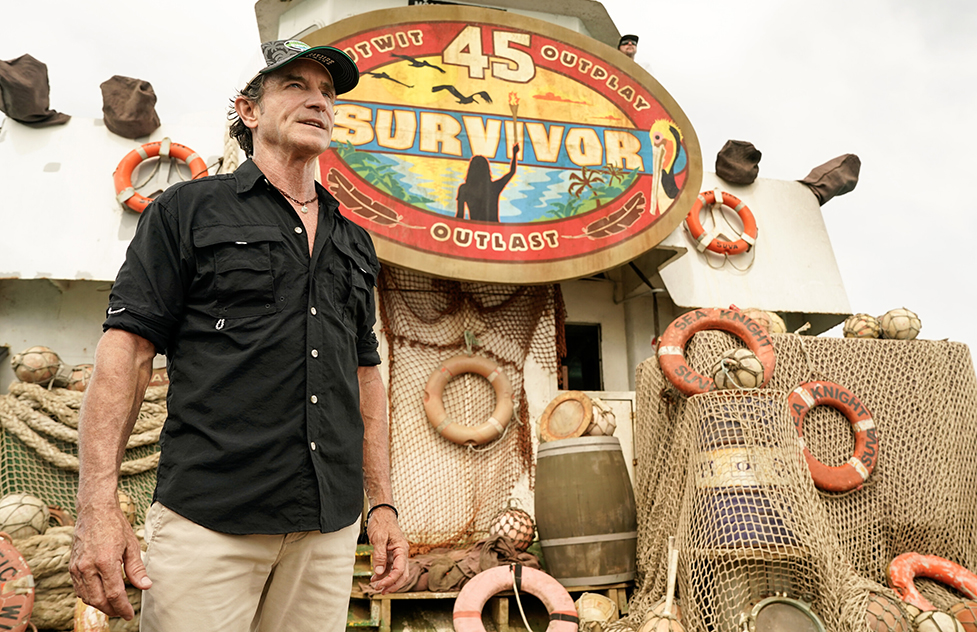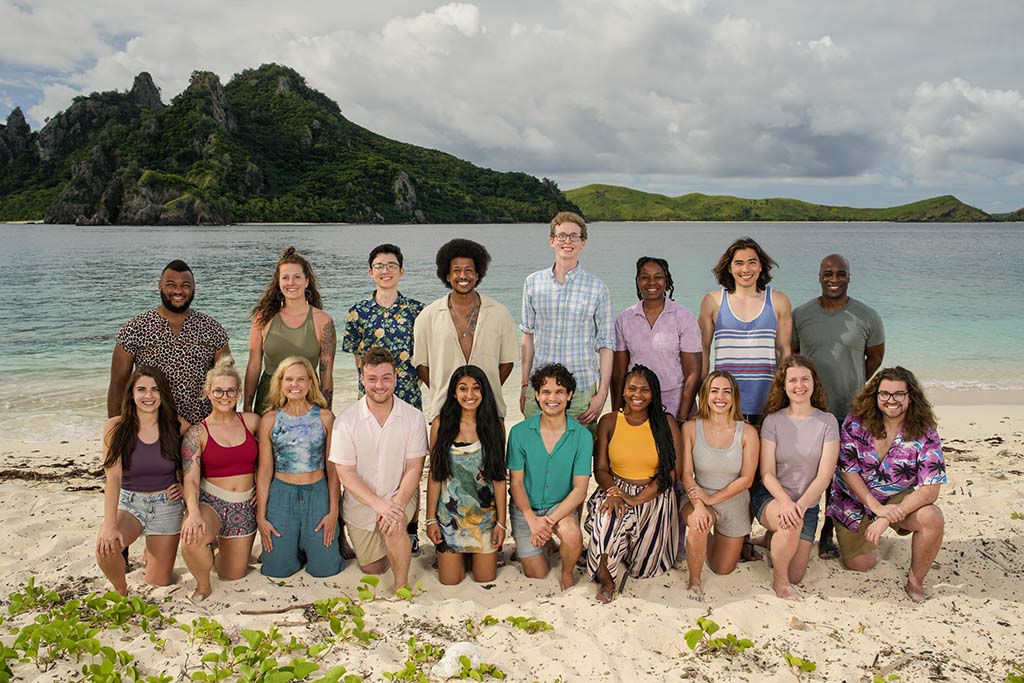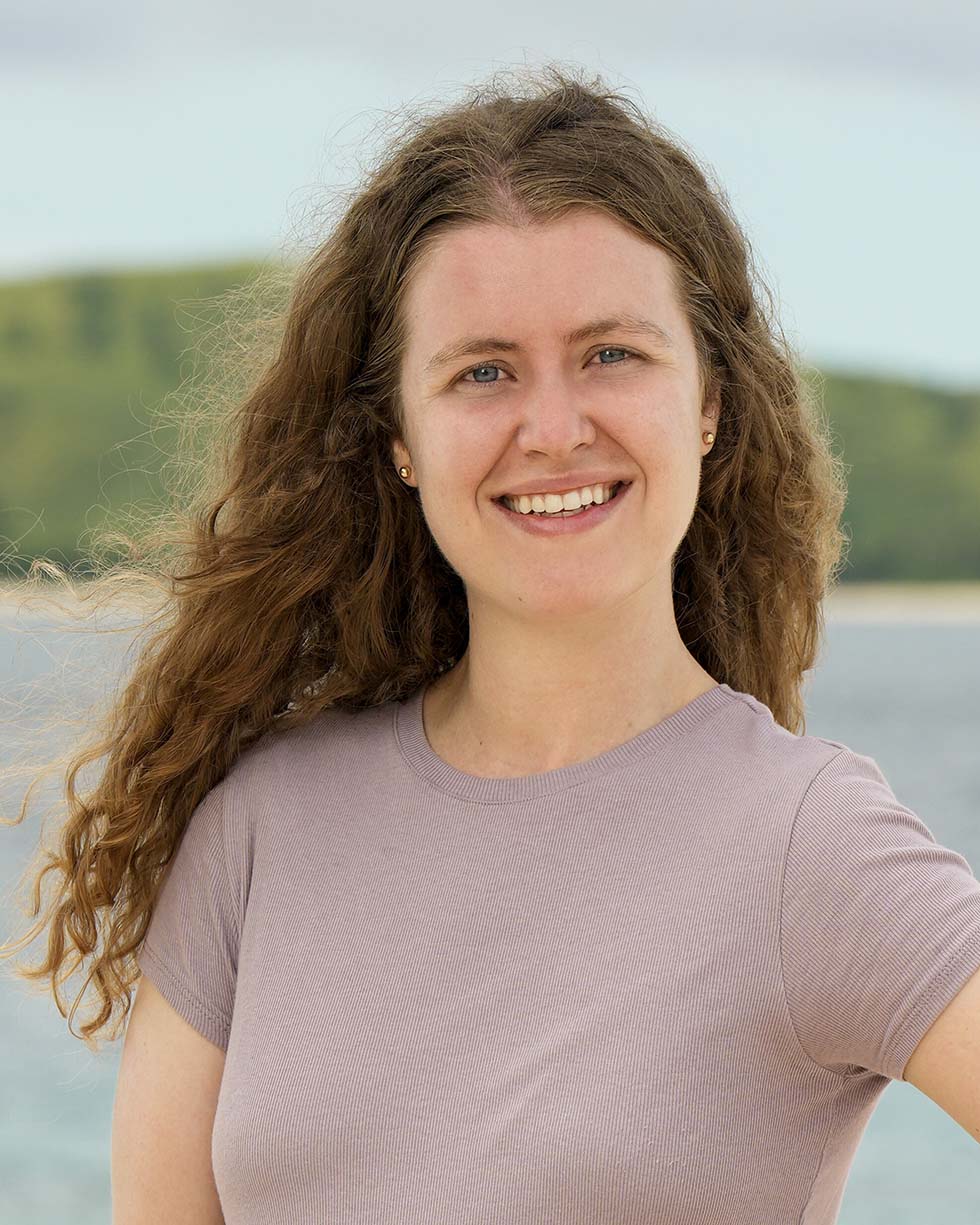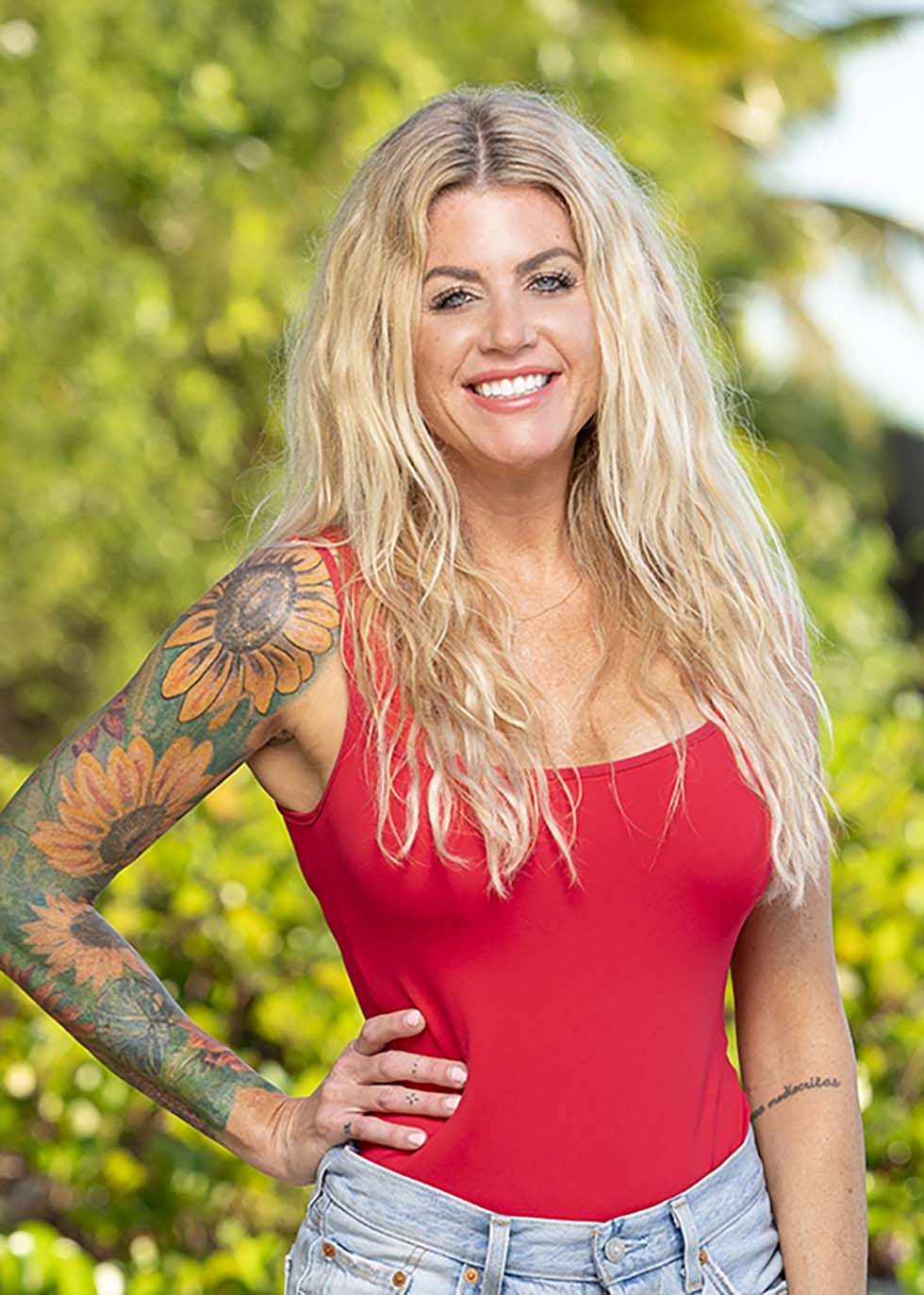Jeff Probst on New ‘Survivor’ Season and How Howard Stern Impacted His Approach to Hosting (Q&A)
A few years back, Probst felt the unscripted CBS staple had ‘run its course.’ He doesn’t feel that way anymore

The smarter way to stay on top of broadcasting and cable industry. Sign up below
You are now subscribed
Your newsletter sign-up was successful
The new season of Survivor kicks off on CBS on Wednesday, September 27, and it tries something that’s never been done in the show’s previous 44 seasons — 90-minute episodes. That means a deeper dive into the contestants and their backstories, more elaborate hidden immunity idols and a longer, richer look at the tribal council sessions that wrap each episode, according to the show’s host and executive producer, Jeff Probst.
Probst also spoke with Broadcasting+Cable about how listening to Howard Stern for a long, long time shaped him as a host, and how much longer he sees himself in that role.
A lightly edited transcript follows.
B+C: In terms of the 90-minute episodes, did the network reach out to Survivor, or did you guys go to CBS and say, ‘Hey, we can go long with the strikes going on?’
Jeff Probst: It had nothing to do with the strike. I’ve actually been pitching CBS to let us experiment with 90-minute episodes for the last several years because we always felt like 90 minutes will be a sweet spot for us. When we get a first cut done for a 60-minute episode, we’re always 10 to 12 minutes heavy, which is a lot. And that’s after we’ve already cut stuff down. So we were hopeful that one day we could try this. It was back in October when CBS came to us and said, ‘Hey, we want to try your idea of 90 minutes as an experiment, but let's just do one season because we don't know if it's going to work.’ That gave us like six months to design the game to ensure that we would have entertaining episodes.
I think the common thought is, ‘Just show more.’ But it doesn't really work that way. I’ll give you a couple of examples. Ninety-minute episodes allowed us to make our hidden immunity idols much more elaborate. So the players will have to be more clever and still you might need some assistance. But the only reason we could really take that kind of a deep dive with them is that we knew we would have time within the episode to show all the steps required to pull it off. And it’s fun. I think fans are really going to enjoy it.
You also have more time to show reality at camp and more time to spend at tribal council. But we definitely designed with 90 minutes in mind.
The smarter way to stay on top of broadcasting and cable industry. Sign up below
B+C: And it allows for a deeper dive into the contestants as well.
JP: Absolutely. That’s the biggest thing. The 90 minutes allows us to spend a little more time with each player, whether it’s a backstory about where they’re from or whether it’s just spending a little more time in a conversation. Sometimes just an extra 30 seconds in a scene can make all the difference. When it comes down to editing, you find yourself often having to trim these beautiful little moments because they’re not necessarily illuminating anything new. It's just taking you deeper. And that’s why I think that fans and CBS are going to love 90 minutes. My hope is that we come back and try it again.
B+C: So it’s a test this season, and you don’t know how long the episodes will be next season?
JP: Right.
B+C: I know you love all your new Survivor contestants. But who do you think has the best chance to pop?
JP: This group, I’m telling you, is dynamic. I’ll tell you who stands out to me for different reasons: Emily, Brandon, Kaleb, Drew, Austin, Sifu, Kellie, Kendra … And I swear to you, I’m not listing every player. All of those players pop.
This is not me blowing smoke. In the earlier seasons, the way we cast Survivor, there were people that stood out more because of their personality. That’s not the case anymore. Especially going back to the new era, with Survivor 41, when [CBS Entertainment president and CEO] George Cheeks said, ‘Look, diversity is no longer a consideration. It is a mandate,’ it will go down as one of the greatest things that’s ever happened to Survivor because it pushed us out of our comfort zone, and it forced us to go out and reexamine the way we find Survivor players.

I think any lifelong Survivor fan has felt the difference. There is a freshness to our casting now. As a result, when you see somebody who looks like you, talks like you, thinks like you, then it gives you permission to apply. So it’s building on itself.
Now the people applying are really compelling, bright, sparkly, smart, interesting people who have often overcome tremendous obstacles. I’m not saying everybody’s going to be a fan favorite, but there’s a lot of really interesting people out there.
B+C: You introduced a Survivor podcast last season. Tell me about season two of the podcast.
JP: The original goal of On Fire was to take fans inside the making of the show, specifically from the producers’ point of view. We had two very clear words, how and why, and that's all we dealt with on the podcast. How do we do this? Why did we do it? We’re not a recap podcast.
We thought what would be interesting now is to add a player point of view. We thought a lot about which player would be great. And we settled on Rick Devens, who played in Survivor Edge of Extinction, season 38. He was already a journalist in his other life. And he’s hosted a podcast. But he's also a really clever player with a great insight on strategy. And he’s a good talker.
We've been working together to figure out how we want to approach this. And we landed at the same place — we want to go inside from the player point of view. What Devens is going to bring is an analysis. Jay [Wolff], who produces the podcast, and Devens will highlight the key turning points of each episode. And then Devens will go in and offer insight into why a player might’ve done a certain thing or said a certain thing. And then he’ll also add his own opinion about what he would’ve done.
What’s going to be interesting is that a player can remind the audience of the things the audience doesn't know or forgets, simple things like, what's it like to form an alliance on day three, when you're fully cognitively functioning, and day 23, when you can't remember how to spell your own name?
It's the little moments like that that I think are going to be really fun. We’ve walked through a couple of shows and how we might do it, and I think it's going to work. And I'll still be there to answer any questions about the how and the why of the episode. So you get the player, the fan and the producer point of view.
B+C: Is there one contestant from the 45 seasons that just pops into your mind a little more than the rest of them, for better or for worse?

JP: The name that really pops out to me is this woman Emily. And you’re going to see why in the first minute of episode one. Emily is somebody who applied to be on the show because she saw Mike Gabler win [season 43] and she didn't like it. So that was her impetus to finally apply. She said, ‘It just didn't sit well with me. So I decided to apply.’ And so she comes out and applies based on that. And then she gets out there and within the first minute, she’s speaking so openly about her opinions that it is shocking.
And then the question becomes, why is she doing this? Is this really her? Is this a game plan? Is she testing the water? That's the kind of player that I really lean into because of the authenticity. She's throwing it out there and saying, ‘This is who I am, this is what I sound like and this is what I think.’ How do you respond to that?
That’s where the game turns and she forces a reaction from somebody early on. It’s only as significant as it becomes, but the move from her to do it is what was so compelling.
It's no different really than Carolyn [Wiger]. We started Survivor 44 with this really tiny moment that I’m not sure ever really fully resonated as to why we did it. But the opening of Survivor 44 is Carolyn. And you hear the voice of our producer Clark [Bernstein], and he says, ‘So Carolyn, tell us about yourself.’
And she’s stumped. She says, ‘What do you mean?’ And Clark says, ‘Your name and what you do.’
The reason we started there is, one, to remind the audience that the responsibility of the storytelling is on the player. And two, the journey this woman is about to start on starts with not even being certain of how to describe who she is. And then 26 days later, she’s in the Survivor Hall of Fame because of that authenticity — in every moment that she spoke, you knew you were getting her truth. Starting with the opening moment when she didn't know how to describe who she was.
That's the kind of person that really rocks me. And I felt that from Emily. The very first time I Zoomed with her in casting, I sat back and went, ‘Whoa, OK. She’s a lot.’

B+C: Will there soon be a season where we have returning players?
JP: We’re definitely going to do another season of returning players. Those are not gone forever. But I’ve got to be honest, I’m loving the new players and there are some people in this season you’re definitely going to want to see back for a second season. And in order to do a returning-player season, you have to find the players who are going to be the returning players.
B+C: Is there another host, whether it’s a game show, a competition series, a talk show, that maybe you emulate a little bit, that’s an influence?
JP: My biggest influence in terms of how I interview is Howard Stern, because listening to Howard Stern for so many years I learned how powerful it can be to actually just say what you’re thinking and to ask the question that you want to ask. And that’s what drives me on Survivor. I never hesitate with a question. Never. I feel, if I’m curious, then I’m pretty sure the audience is curious. And that’s allowed me to have some really interesting conversations that I’m not sure I would’ve had without that kind of a mentorship.
There are other people that I’m not sure I emulate, but I wish I would. Larry King had a beautiful style, which is he just asked the question and the question was usually like eight to 10 words. And it was so clear and direct: ‘Why’d you quit? Why’d you get divorced? Why’d you just stop drinking?’ I try to remember that — you don’t have to be clever, you just have to be clear.
The reason I don’t emulate anyone is, I want to have my own point of view. And I do have a point of view.
B+C: If you're watching an episode from an early season, how do you feel? Do you like it? Do you cringe?
JP: It's hard to go back and watch early seasons. I try to give myself some grace because I was learning, and Survivor is essentially a live television show every day. We don't go back and do anything over, and that includes what I say and how I behave. The editors leave in what I say. They know I don’t want to pull out my poor grammar or a questionable response. I want to live by the same code that we ask the players to live by, which is, we’re going to tell what happened out there.
We didn't set out to create a new era. We set out to create a new game, but what resulted was something significantly different. And it's revitalized me, and my enthusiasm is genuine.”
— Jeff Probst
But yeah, there are earlier seasons where I look back and I cringe, and it's not just because I wore a cowboy hat. It’s also because I was learning how to host a really unique show. The reason I give myself grace is [that] I was learning.
B+C: Do you see an end date for you as host of Survivor?
JP: It’s funny when I hear that question because I laugh at how excited I still am about Survivor. I'll run into somebody, a Survivor family, and we’ll talk about Survivor and then I’ll see maybe the dad looking at me with his head tilted, like, is this guy for real? You really still love this show so much? I’m telling you, I do.
There was a big shift for me at the end of Survivor 40. I was a little burned out and I felt like the show in that version had run its course and that the players were so savvy to all of the ideas that we had that they could sort of deduce three or four things that might be coming. And it just felt like we needed to do something.
So having a bit of a [COVID-19-related] break actually helped us from a standpoint of, we were able to step back and say, ‘Where should we take the show?’ And it led to this new era. We didn't set out to create a new era. We set out to create a new game, but what resulted was something significantly different. And it's revitalized me, and my enthusiasm is genuine.
A lot of it comes from the people that we’re putting on the show. I like the drive, I like the diversity. It’s not just ethnicity — it’s background, it’s where you were born, how you were raised, your age, your gender, your sexuality, your approach to all of that makes this really interesting tapestry.
And then you still have that same beautiful, simple format. You have to work together to survive while conspiring against each other. And in the end, what happens is you get the journey of your fucking life.
Michael Malone is content director at B+C and Multichannel News. He joined B+C in 2005 and has covered network programming, including entertainment, news and sports on broadcast, cable and streaming; and local broadcast television, including writing the "Local News Close-Up" market profiles. He also hosted the podcasts "Busted Pilot" and "Series Business." His journalism has also appeared in The New York Times, The L.A. Times, The Boston Globe and New York magazine.

